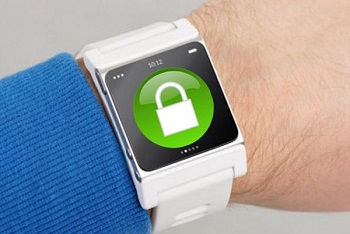As the number of smartwatch and smartband wearers grows, the amount of data tracking increases, too.
According to the results of a recent mobile security study that have just been published, the users of wearable tech devices can become the victims of cyber attacks, personal data breaches, or simply basic tracking by an individual with a low budget and a small amount of knowledge on the subject.
In fact, the study showed that all that is required is about $70 worth of hardware to track a wearable tech user.
The study was conducted by Symantec, the online and mobile security giant. Its researchers came up with a very simple design that brought a Bluetooth radio module together with a Raspberry Pi computer that was capable of scanning the area for the signals of wearable technology. The device was brought to various parks and sporting events where the researchers were then capable of recording the data that was being broadcasted by devices that were nearby.
The mobile security “attack” went completely undetected by the device users because no attempt was made to connect.
 The device made by the researchers never attempted to make a connection with the specific wearables that were being tracked. This was not required because the data was collectable due to the sheer simplicity of the wearable tech, which communicates with more complex devices – such as smartphones, tablets, and laptops – in order to make its information usable to the wearer.
The device made by the researchers never attempted to make a connection with the specific wearables that were being tracked. This was not required because the data was collectable due to the sheer simplicity of the wearable tech, which communicates with more complex devices – such as smartphones, tablets, and laptops – in order to make its information usable to the wearer.
The researchers brought the detection devices to public places in Ireland and Switzerland. They found that among all the types of mobile devices that are carried by people in these types of location, it was wearables that were particularly easy to track. According to the team, in a blog post that they made on the subject, “All the devices we encountered can be easily tracked using the unique hardware address they transmit.”
Among the types of mobile security vulnerability that were found in these devices, the researchers were also capable of remotely probing the gadgets to reveal identifying information or serial numbers. That said, they felt that this type of information would be considered to be “trivial” by people who have computer knowledge and who would be capable of actually accessing this data.

